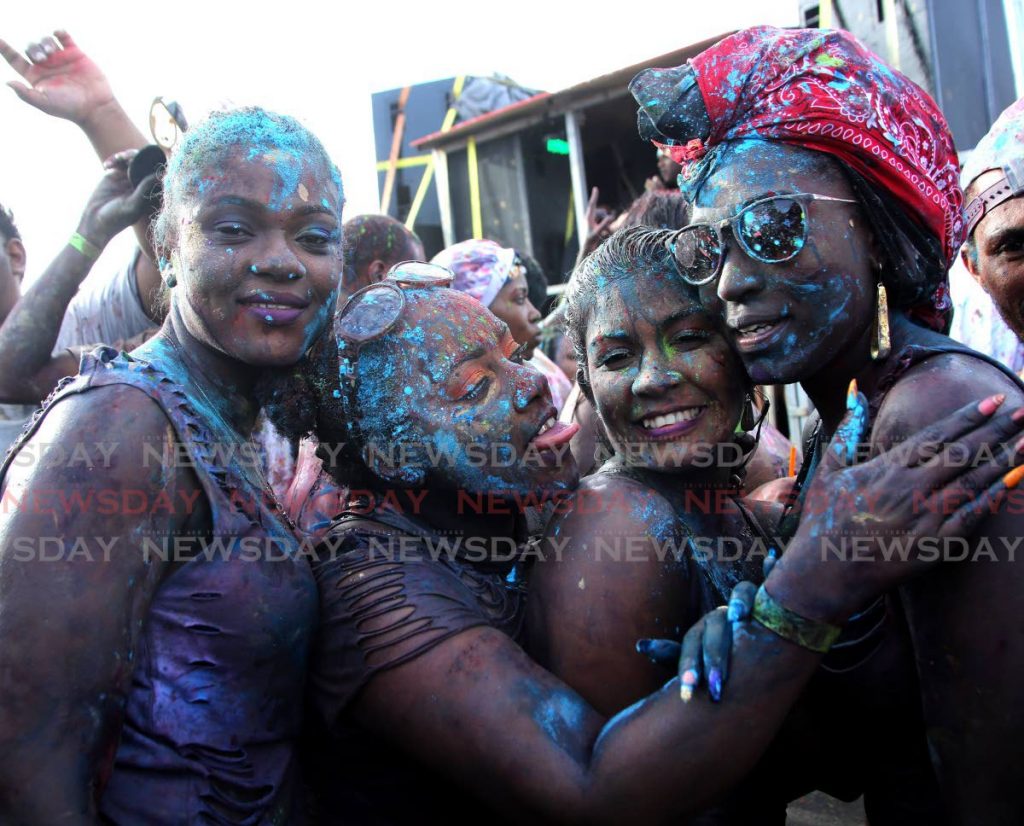Michael B Jordan's J’Ouvert rum a huge missed opportunity for Trinidad and Tobago

kmmpub@gmail.com
The furious backlash over J’Ouvert rum is myopic and has made us poorer.
It all started when American actor Michael B Jordan (of Black Panther fame) launched a rum in California called J’Ouvert, named after the daybreak opening festival of Caribbean carnivals, originating from the celebrations of freed slaves.
This immediately triggered a backlash on social media and in the press in TT and internationally.
Spotting the perfect ingredients for the culture wars so beloved by Generation Z and Millennials, the BBC and Buzzfeed picked up the story, with TT-born rap star Nicki Minaj wading in. Competing local rum manufacturer Angostura disavowed any connection, touting its authentic credentials.
The net result: faced with a media storm, Jordan has contritely apologised and promised to rename the rum.
This has been greeted with much self-congratulation across social media.
But when the dust has settled and the news cycle turns over, it will become clear that the losers from all this are the people of TT.
We have lost the potential for an international celebrity to market our brand and create jobs at home.
How many opportunities do we have to market our island internationally? For all the talk of TT Carnival being the greatest show in the world, it remains largely niche. Rio and New Orleans are much better known.
With thousands laid off amid covid19 and continually declining gas production, do we really have the luxury of insularity?
Charges of cultural appropriation are ultimately self-cannibalising. What has happened is that after failing to create global brands from our rich culture, we’ve witnessed a savvier American celebrity do so successfully, and decided that it is far better to prevent him from doing so than for us to gain from the international exposure.
This has happened time and again. There are more steelpans manufactured outside the Caribbean than in it (the Japanese apply beautiful craftsmanship to their work).
The very charge of “cultural appropriation” is particularly strange, coming from a culture that is entirely shaped by a confluence of migrant influences. I wonder how we would feel if the Yoruba or Akan people, or those of Bihar or Uttar Pradesh suddenly started claiming that we have appropriated their culture and religion.
This doesn’t mean we shouldn’t question the authenticity of brands using local culture, which we should rightly be proud of and defend. International consumer demand for authenticity gives us leverage that could have used to drive collaboration in, for example, contract drinks manufacturing, tourism, music or Carnival.
However, in the torrent of righteous indignation, this opportunity was lost, and with it, the potential for greater jobs and brand exposure.
Ironically enough, it is unlikely that Jordan would ever have got anywhere near this level of free advertising without the controversy – a great marketing plan – except we will no longer benefit.
We still have a strong stable of cultural concepts, most of them commercially untapped. According to David Inglefield, founder of the Caribbean’s largest advertising agency, Inglefield, Ogilvy and Mather: “We need to look deep into our culture to produce global brands. Cultural and national icons are like muscle and muscle memory. If you don’t use it – you lose it.”
The best way of retaining the authenticity of our culture is to have a hand in commercialising it ourselves. Why did it take an American actor to recognise the value inherent in our brand? This continues years after the Andrews Sisters copyrighted calypsonian Lord Invader’s Rum and Coca-Cola.
We should make it easier to trademark brands related to our culture and invite more international investors to work with local cultural icons to develop viable businesses from our cultural products. Branding and licensing in international markets is one of the fastest ways to export our culture, especially as our artificially propped-up exchange rate disincentives manufacturing locally.
But the market for this will remain minuscule until we actively engage with international brand ambassadors who love our culture, and work with them to publicise it to a larger audience.
The NCC, for example, estimates there are more 180 carnivals worldwide related to TT, almost all of which have been created by our diaspora. Beyond the United States, we should be looking at Nigeria or South Africa as potential markets, and moving to strategically develop our presence there. This is a multi-billion-dollar foreign-exchange-earning opportunity to convert fans into customers.
As anyone who has experienced it knows, the spirit of J’Ouvert is one of inclusion and openness. The lesson here is that it will take rediscovering that spirit to create true opportunity.
Kiran Mathur Mohammed is an economist and co-founder of medl, an IDB lab-backed social impact health tech company


Comments
"Michael B Jordan's J’Ouvert rum a huge missed opportunity for Trinidad and Tobago"